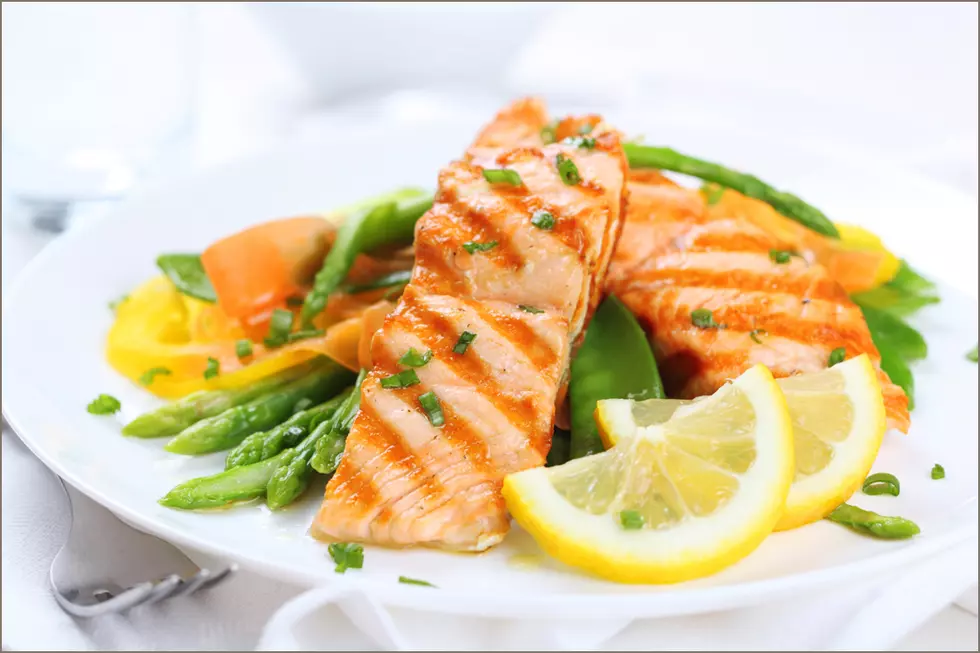
7 Foods You Should Be Eating for a Healthy Heart
Despite the fact that the death toll due to heart disease has fallen slightly and many of us are eating better and exercising more, according to the CDC, the number one cause of death for Americans is still heart disease. In other words, we have more to do.
Doing more can be as simple as making some changes to your diet. That's why you should consider adding more of these seven foods to your plate for their heart-health benefits.
Greens
If you're concerned about heart disease (and we all should be), you need to add greens to your diet. Obviously, green, leafy veggies like spinach, kale and bok choy, as well as dark greens like broccoli and Brussels sprouts are good additions to a healthful diet, but they're great for fighting heart disease because they're loaded with vitamins and antioxidants. You should also add green tea, a drink that has been benefitting drinkers for centuries with its catechins, which act as an antioxidant. Finally, add avocados to your list of greens. They're the greens that can provide you with the monounsaturated fats that may reduce your risk of heart disease by decreasing bad cholesterol. Once again, they add antioxidants, as well as beneficial potassium.
Potatoes
Don't let popular diet culture fool you. Potatoes aren't bad for you. When it comes to preventing heart disease, potatoes are definitely worth adding to your diet. They're filled with potassium which can reduce blood pressure and they're high fiber content can help reduce risks for heart disease. If you can't quite make yourself eat a starchy white potato, sweet potatoes are a great alternative with the same benefits. They're filled with antioxidants, beta-carotene, folate, copper, iron and all kinds of other very helpful vitamins and minerals. Plus, having roasted sweet potato for dinner is basically like eating your dessert first.
Tomatoes
While we're talking about potassium and beta-carotene, we might as well add tomatoes to the list of heart-healthy foods you should be scooping more of onto your plate. The antioxidant lycopene in tomatoes not only helps fight against heart disease, it may also help protect you against some cancers. Along with your sweet potatoes and greens, tomatoes will add vitamins A and C to your diet, as well as phytochemicals, all of which are helpful for reducing your risk of developing heart disease.
Fatty Fish
The new buzzword in foods that fight heart disease is omega-3. Adding more omega-3 fatty acids to your diet helps to lower blood fats, called triglycerides, which can help reduce build-up in your arteries. One great source of low-fat, high omega-3 protein is fish like salmon or mackerel. Sardines and herring are also a good substitute for high sodium snacks. Experts say you should be eating fatty fish like these a few times a week. Just make sure you aren't cooking them up with tons of saturated fats like butter and margarine.
Legumes, Nuts and Flax
Great for snacking, but also good in your homemade dishes, legumes, nuts and flax seeds are not mentioned enough for their heart-healthy benefits. These foods like lentils, beans, almonds and flax meal deliver high amounts of omega-3 fatty acids in a high-protein, low-sodium, cholesterol-reducing package. You just have to make sure you aren't eating nuts that have been coated in salt first. The simple act of adding flax to your (also heart-healthy) oatmeal or yogurt can help reduce your risk of heart disease. Consider substituting a meat meal once a week with a protein-packed meal of beans for a lower-fat, lower-cholesterol diet.
Berries
Berries are finally starting to get the credit they deserve for helping us all live more healthfully. Not only are they sweet and delicious (and a great way to satisfy a sweet tooth without completely busting a diet), they're also filled with antioxidants. Blueberries have the most, but any colored berries like raspberries, strawberries, blackberries and cranberries will have heart-healthy antioxidants. Apparently they get their coloring from a pigment called anthocyanin, which is an antioxidant that fights “free radicals” in your body and reduce your risk for heart disease. While you're adding flax seed to your oatmeal, go ahead and scoop in some berries.
Dark Chocolate
Finally, no heart-healthy diet is complete without some dark chocolate. This is a dessert we can get on board with, even while watching what we eat. The key is having chocolate that's at least 70 percent cocoa and only 30 percent sugar and other additives that make it even tastier. Processed chocolate and candy bars aren't going to help you with heart disease. People who eat a little bit of dark chocolate every day have been shown to have better blood flow, which means their arteries aren't all filled with plaque and cholesterol. Scientists believe it's the flavonoids, called polyphenol, in the dark chocolate that help with blood pressure clotting and inflammation.
More From 95 Rock




![Bullet Grazed Border Patrol Agent’s Head During School Shooting [PHOTOS]](http://townsquare.media/site/34/files/2022/05/attachment-Screen-Shot-2022-05-26-at-12.27.42-PM.jpg?w=980&q=75)




